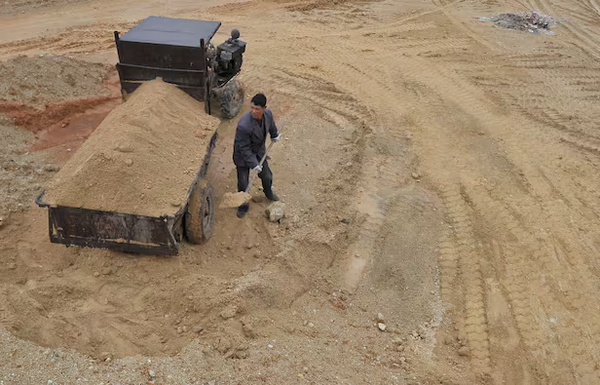Business
China Grants Rare Earth Export Licenses to South Korea Amid Trade Dispute

China has granted export licenses for rare earth metals to several South Korean companies despite ongoing export controls related to trade tensions with the United States. The Ministry of Trade, Industry and Energy in South Korea confirmed on May 25 that China’s Ministry of Commerce approved rare earth exports this month to major South Korean firms sourcing these materials through Chinese suppliers. This is the first confirmed case of such approvals since China imposed export controls on seven rare earth elements on April 4.
The export controls were introduced by China as a direct response to the U.S. tariff policy on Chinese goods. On April 2, the United States announced a 34 percent tariff on imports from China, which Beijing matched two days later with retaliatory tariffs on U.S. goods. At the same time, China imposed export restrictions on seven rare earth metals including samarium, gadolinium, terbium, dysprosium, lutetium, scandium, and yttrium. These metals are critical in advanced technologies like smartphones, electric vehicles, and green energy industries. China’s dominance in rare earth supplies means the restrictions significantly affect global supply chains.
South Korea relies heavily on rare earth elements for its electronics and automotive sectors. The approval of export licenses by China has eased immediate concerns about supply disruptions, though companies still face delays. Export approvals can take up to 45 days, which continues to cause uncertainty in the market.
China and the United States recently held trade negotiations in Geneva on May 12, where they agreed to reduce mutual tariffs by 115 percentage points over 90 days and lifted dual-use export controls on 28 U.S. companies. However, China has not lifted the export controls on the seven rare earth metals and excluded them from the tariff exemptions. This shows that China continues to use rare earth exports as a strategic tool in trade relations.
South Korea has maintained active communication with Chinese officials to ensure that export applications for rare earth materials are processed as quickly as possible. This cooperation is essential to securing a stable supply for South Korea’s industries amid ongoing geopolitical tensions.
Rare earth metals are vital for many modern technologies, making China’s control over their supply a significant factor in global trade and industry. While recent export approvals provide some relief, companies and governments should prepare for ongoing uncertainties.








